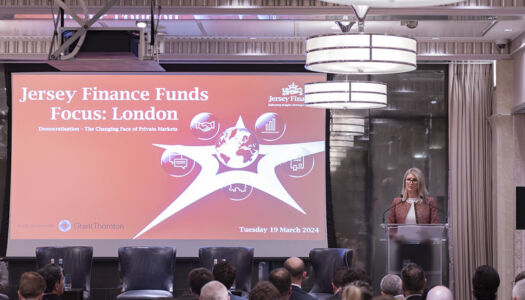The impact of generative AI on the business world has been a key theme over the first six months of 2023 – and depending on who you listen to, we have either a decade, or just a few months to really get to grips with AI technologies before we are going to start to see widespread adoption and risk getting left behind.
The reality is perhaps somewhere in the middle – from a fintech perspective, figures from CB Insights show that while fintech fundraising reached record levels in 2021, rising by 168% from US$49 bn in 2020 to US$131.5 bn in 2021, such growth is unlikely to happen again any time soon – particularly given the inflationary environment and geopolitical instability we are currently seeing.
There’s no doubt though, that the direction of travel is towards greater automation, and that digital expertise will form an increasingly important part of our proposition as an international finance centre (IFC).
Recent work we did with Wealthbriefing, for example, shows that private investors and families are embracing a much closer relationship with all aspects of the digital environment – from digital assets to digitally-empowered approaches to ESG investment, to operational automation. And a white paper we published recently with IFI Global on tokenisation set out the case for digital assets and tokenisation to significantly transform the cross-border alternative funds space too.
Powered by People
Looking forward, the scale of potential impact of fintech lies in its ability to make the industry significantly more productive. For senior leaders, for example, greater automation and the use of AI tools should drive better decision-making, because they’ll have quicker access to better data that’s presented in a clearer way, with more informed insight.
Although a lot has been said about automation replacing jobs, my sense is that actually good use of technology cannot be done without good input and analysis by people, and I don’t expect fintech adoption to drastically reduce headcount in Jersey. We are still going to need people to intelligently analyse data, and to do so more effectively than we’re able to today with new tools and automations.
In fact, as a result of technological progress, we should expect to see new roles developing that are more targetted on harnessing technology to meet specific issues – such as meeting climate change challenges and evolving working patterns. That means new opportunities, but it also means addressing a skills challenge, which is something we’re very focussed on at the moment in Jersey.
Significantly, six months ago, Digital Jersey and the Government of Jersey published updated digital skills strategies specifically to address existing and future forecast digital skills gaps in Jersey, right through from school age to those already in the workforce, across different industries.
Investing in digital skills like this is essential if we are to continue to position ourselves as a thriving, internationally-dynamic IFC.
IFC Proposition
And it’s important that we do continue to focus on asserting our reputation as a digitally-driven, forward-thinking jurisdiction – our ambition is to be the easiest IFC to do business with remotely, in a digital world.
That doesn’t just mean keeping up with the pace of change for the sake of it. It means demonstrating leadership in this area, because we believe fundamentally that being a leader in fintech can bring dividends to global markets.
Just as Jersey’s raison d’etre as an IFC is about making global capital flows easier and more seamless and secure, so too can these principles be applied to the role of fintech.
It’s about speed. It’s about accuracy. It’s about efficiency.
It’s aligned absolutely with what our more ‘traditional’ aims are as an IFC.
Which is why it was fantastic for Jersey to be represented recently at the Inclusive Fintech Forum in Kigali, Rwanda, when Deputy CEO Amy Bryant took to the stage to talk to an audience of global regulators, policymakers, decision-makers, founders, and investors about the important role IFCs have in developing and providing fintech solutions to benefit global markets.
Our recent Demo Day was another case in point – for the first time bringing together fintech and sustainable finance solutions, to help deliver smarter strategies to tackle real world problems.
We believe that IFCs have an important role to play in integrating fintech into the cross-border landscape – and we believe that Jersey has all the right ingredients to help drive that fintech agenda forward.
As well as a supportive government and regulator, an active digital industry body, and a growing skills base boosted by an on-Island digital skills academy, Jersey is one of the best-connected locations in Europe, with a 100% 1GB full fibre point-to-point network.
It positions Jersey strongly as a sandbox for innovation, as a neutral hub for bringing different global technologies together and as a conduit for bringing different players to the table to identify new solutions, partnerships and collaborations.
Digital reskilling will be vital in this new environment – not because people are beholden to technology, but because technology needs to be harnessed by people who can get the best out of it. As such, people power will continue to be core to the IFC proposition. We will be aided and boosted by fintech, but our people will be our USP. Our people will be critical in delivering first class service. And our people will be what drives our reputation and instils trust amongst our stakeholders.
More from Jersey Finance

Our News
24 April 2024





